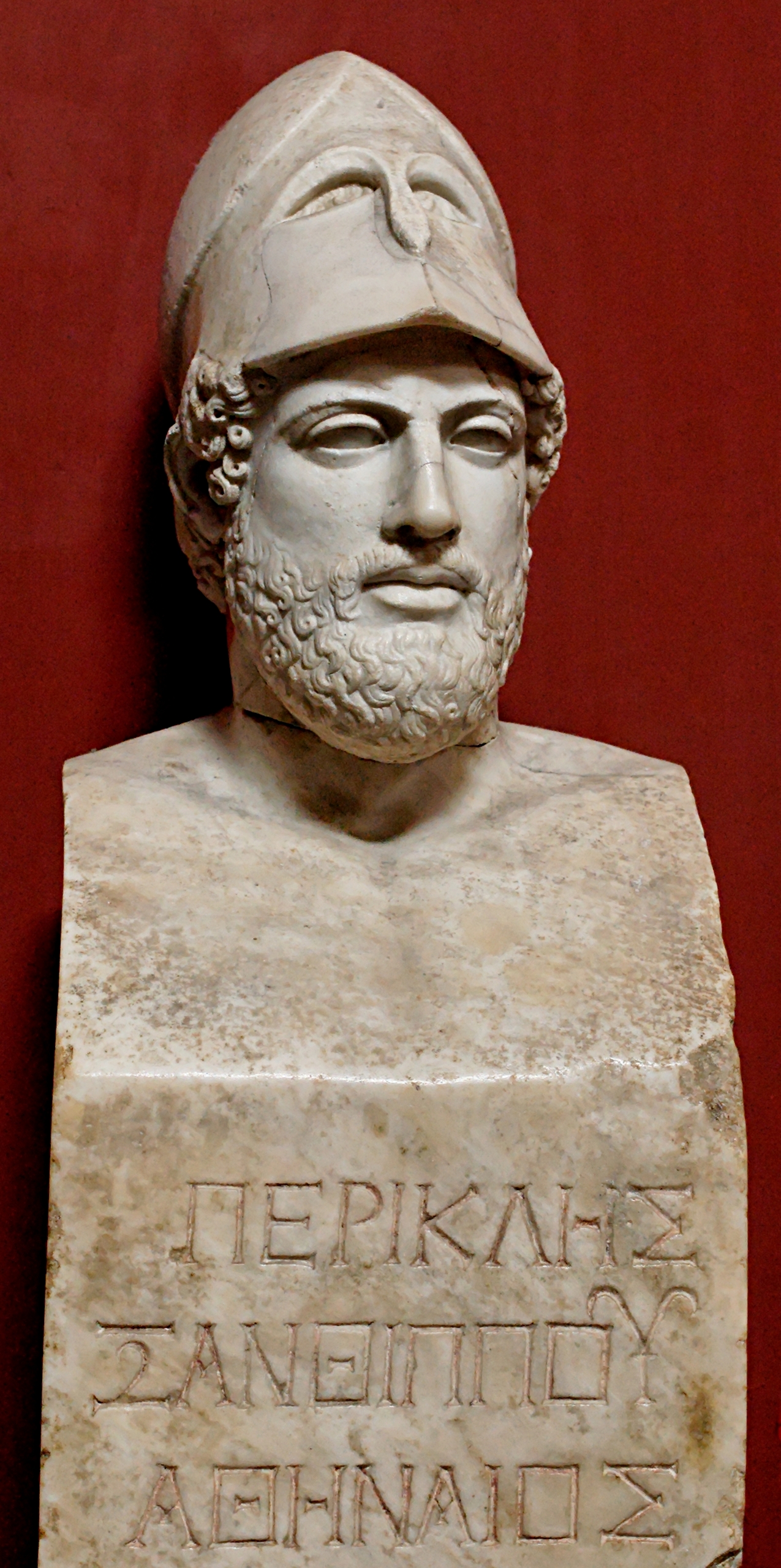Périclès Citations
Périclès: Citations en anglais
“Time is the wisest counselor of all.”
As quoted in Until Tomorrow Comes (1979) by Orville E. Kelly, p. 160
“Future ages will wonder at us, as the present age wonders at us now.”
As quoted in Eternal Greece (1961) by Rex Warner, p. 34
Contexte: Future ages will wonder at us, as the present age wonders at us now. We do not need the praises of a Homer, or of anyone else whose words may delight us for the moment, but the estimation of facts will fall short of what is really true.
As translated by Richard Crawley (1951)
History of the Peloponnesian War
Book 2, chapter 44: Funeral oration, as translated at "In Defense of Democracy" http://www.cooperativeindividualism.org/pericles_in-defense-of-democracy.html
Verse 4 is sometimes freely translated as The secret to happiness is freedom. And the secret to freedom is courage.
History of the Peloponnesian War
Contexte: I could tell you a long story (and you know it as well as I do) about what is to be gained by beating the enemy back. What I would prefer is that you should fix your eyes every day on the greatness of Athens as she realty is, and should fall in love with her. When you realize her greatness, then reflect that what made her great was men with a spirit of adventure, men who knew their duty, men who were ashamed to fall below a certain standard. If they ever failed in an enterprise, they made up their minds that at any rate the city should not find their courage lacking to her, and they gave to her the best contribution that they could. They gave her their lives, to her and to all of us, and for their own selves they won praises that never grow old, the most splendid of sepulchers — not the sepulchre in which their bodies are laid, but where their glory remains eternal in men's minds, always there on the right occasion to stir others to speech or to action. For famous men have the whole earth as their memorial: it is not only the inscriptions on their graves in their own country that mark them out; no, in foreign lands also, not in any visible form but in people's hearts, their memory abides and grows. It is for you to try to be like them. Make up your minds that happiness depends on being free, and freedom depends on being courageous.
Pericles' Funeral Oration
History of the Peloponnesian War
“Although only a few may originate a policy, we are all able to judge it.”
As quoted in The Open Society and Its Enemies by Karl Popper (1966). Book II, chapter 40.
“Freedom is the sure possession of those alone who have the courage to defend it.”
As quoted in Homage to Greece (1943)
2.37
History of the Peloponnesian War
Pericles commenting the participation of Athenian citizens in politics, as quoted in Models of Democracy (2006) by David Held, Stanford University Press, p. 14. Book II, chapter 40.
As quoted in A Brief and True Report concerning Williamsburg in Virginia by Rutherford Goodwin (1941), p. 125
Book 2.40
History of the Peloponnesian War
As quoted in Flicker to Flame : Living with Purpose, Meaning, and Happiness (2006) by Jeffrey Thompson Parker, p. 118
This quotation is likely a modern paraphrasing of a longer passage from Thucydides' History of the Peloponnesian War, II.43.3.
Book 2
History of the Peloponnesian War
Book 2, chapter 63: Pericles' third speech
History of the Peloponnesian War
